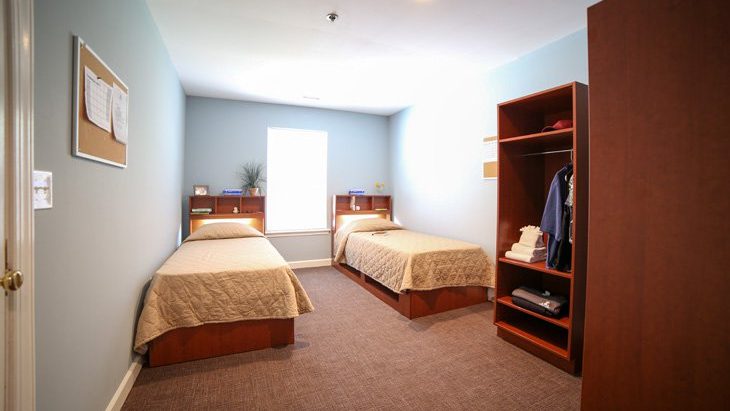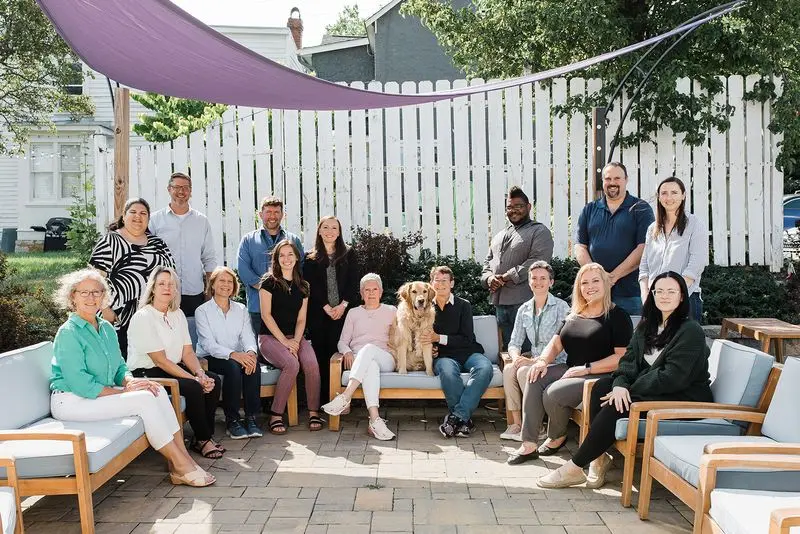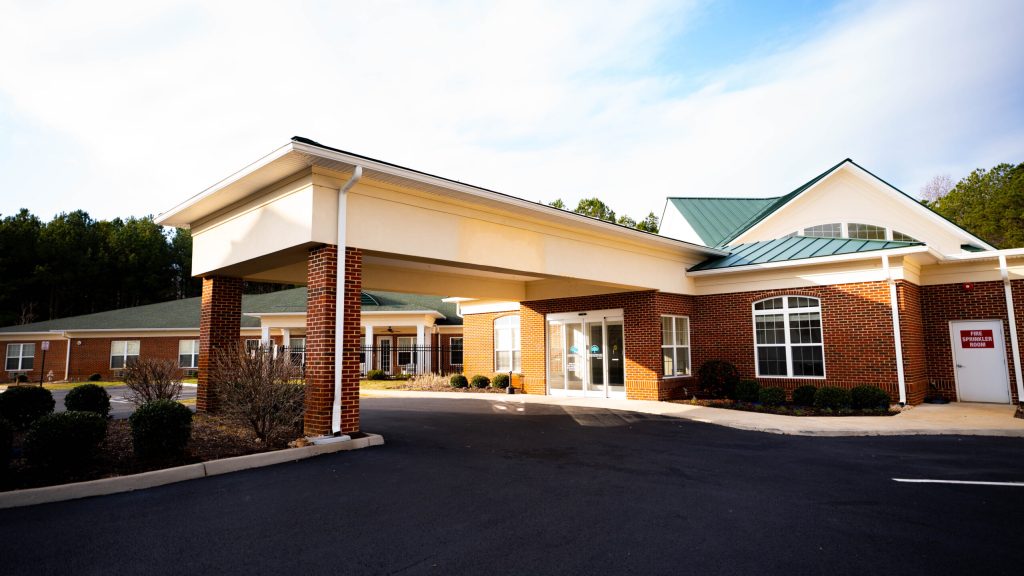The Farley Center at Williamsburg Place
The Farley Center at Williamsburg Place is a comprehensive addiction treatment facility in Virginia that delivers individualized, evidence-based care in a serene campus environment. Its long history (over 30 years) and affiliation with Summit BHC augment its capacity to serve adult clients across residential, outpatient, and detox levels. Its specialty tracks for professionals, veterans, and…
Bridging the Gaps (BTG)
Bridging the Gaps (BTG) is a holistic addiction treatment center in Winchester, Virginia, that blends traditional clinical therapies with integrative modalities to treat the whole person. Its tranquil, home-style residential setting and comprehensive spectrum of care make it well-suited for clients seeking depth and balance in recovery. The Bridging the Gaps Philosophy of Professional Support…
Arrowwood Addiction Treatment Center (AATC)
Arrowwood Addiction Treatment Center (AATC) in Hopewell, Virginia, provides a full continuum of addiction care combining evidence-based clinical therapies with a luxury amenities approach. Its residential campus includes a spa, wellness facilities, and comfortable semi-private rooms to support healing in a dignified environment. Arrowwood tailors treatment plans to individual client needs while supporting transitions across…
Why Trust ExecutiveRehabs
Since 2003, our expert team has built comprehensive resources on executive rehab centers that you can trust to find the right treatment for you.
Transparency and accuracy matter, and we believe you deserve nothing short of the best possible experience when reaching out for support.
FAQs on Executive Rehab
Executive Support in Virginia: A Look at Professional-Level Treatment Options
Virginia’s professional and executive community faces distinctive pressures that shape the state’s addiction treatment landscape.
The region’s economy, anchored by the D.C. metro corridor, Richmond’s corporate hubs, and Northern Virginia’s defense and technology sectors, creates an environment where long hours, leadership stress, and confidentiality concerns often compound the challenges of substance use.
According to the Substance Abuse and Mental Health Services Administration (SAMHSA), roughly 14% of adults in Virginia report a substance use disorder each year, a rate comparable to the national average.
Yet, treatment utilization remains low, in part because professionals fear stigma and professional consequences.
The Virginia Department of Behavioral Health and Developmental Services (DBHDS) has noted that treatment capacity has not kept pace with growing demand, particularly for high-acuity and confidential residential care.
Executives, medical professionals, and licensed practitioners frequently delay or avoid treatment altogether, citing concerns over reputation, exposure, and potential impacts on security clearances or licensure.
The Nature of Executive Rehab Programs
Executive rehabilitation programs differ from traditional treatment in several key ways. They integrate privacy, flexibility, and individualized clinical care with an understanding of the executive lifestyle.
Facilities such as The Farley Center in Williamsburg and Mount Regis Center in Salem offer specialized environments where business leaders can maintain a degree of connectivity, often with private rooms, secure Wi-Fi, and work accommodations.
These programs are also built around dual-diagnosis treatment, addressing co-occurring conditions like depression, anxiety, or trauma alongside addiction.
Research from the Journal of Substance Abuse Treatment (NIH, 2021) confirms that professionals treated with integrated mental health and substance use approaches show improved recovery engagement and reduced relapse rates compared with standard models.
Challenges Facing Executives in Virginia
Despite its population density and strong healthcare infrastructure, Virginia lacks a wide network of dedicated executive-level treatment centers.
DBHDS’s 2024 Behavioral Health System Review highlighted a limited number of high-end residential beds and inconsistent insurance coverage across facilities. Executives often encounter several barriers:
-
Confidentiality concerns: In smaller communities or close-knit industries, even HIPAA-compliant treatment can feel risky.
-
Professional oversight: Licensed professionals and government employees may face mandatory reporting obligations that deter treatment.
-
Insurance limitations: Many executive programs remain out-of-network, making private payment the only viable option for some clients.
-
Geographic limitations: While intensive outpatient and partial hospitalization programs exist near Washington, D.C. and Richmond, residential luxury programs are sparse within the state’s borders.
These limitations lead many Virginia professionals to seek care outside the state, where privacy and specialization are more accessible.
Out-of-State and Luxury Destinations
Executives from Virginia commonly pursue treatment at nationally recognized facilities known for discretion, personalized care, and professional integration.
-
Florida offers high-end residential centers such as Caron Ocean Drive and The Recovery Village, both featuring concierge-level amenities and private treatment settings.
-
Tennessee: Cumberland Heights provides a specialized executive track emphasizing family systems, leadership stress, and long-term recovery planning.
-
California’s Meadows and Hazelden Betty Ford Center remain leading destinations for trauma-informed executive treatment and clinical sophistication.
These programs attract Virginians who prefer distance from local networks or seek settings where executive treatment is more established.
Legal and Confidentiality Protections in Virginia
Virginia’s legal framework provides strong protections for behavioral health patients.
Under Virginia Code §37.2-400 et seq., records from substance use and mental health treatment remain confidential and may only be released with patient consent or by court order.
These protections align with federal 42 CFR Part 2 regulations governing the confidentiality of substance use disorder treatment records.
The state also regulates treatment facilities under 12VAC35-105, requiring proof of qualified staffing, evidence-based care, and quality improvement protocols. Executives seeking care can verify a facility’s licensure through the DBHDS Provider Search portal to ensure compliance and quality.
Occupational and Cultural Context
Virginia’s workforce includes large numbers of government contractors, healthcare administrators, military officers, and corporate leaders: all roles with significant stress exposure and reputational sensitivity.
A 2022 report by the National Safety Council found that professionals in safety-sensitive or high-liability positions are twice as likely to conceal substance-related problems until reaching a crisis.
Effective executive programs in and around Virginia respond to this with flexible care models: private therapy, leadership-focused peer groups, and telehealth-based aftercare designed for minimal disruption.
The expansion of telehealth and hybrid treatment options has also helped executives begin recovery while maintaining professional commitments, bridging the gap between residential and outpatient care.
Looking Ahead at Treatment Centers of Professionals in Virginia
Virginia’s executive treatment ecosystem is gradually expanding. Ongoing initiatives under the Behavioral Health Redesign Project and new private investments suggest increased attention to high-end, evidence-based addiction care.
However, for now, most Virginia executives requiring intensive or luxury rehabilitation still travel out of state to access fully private, clinically comprehensive programs.
For those remaining in-state, programs like the Farley Center and Mount Regis Center represent strong, accredited options that blend clinical rigor with discretion.
Coupled with outpatient specialists and telehealth continuity, these facilities anchor a growing framework of executive-level care within the Commonwealth.



